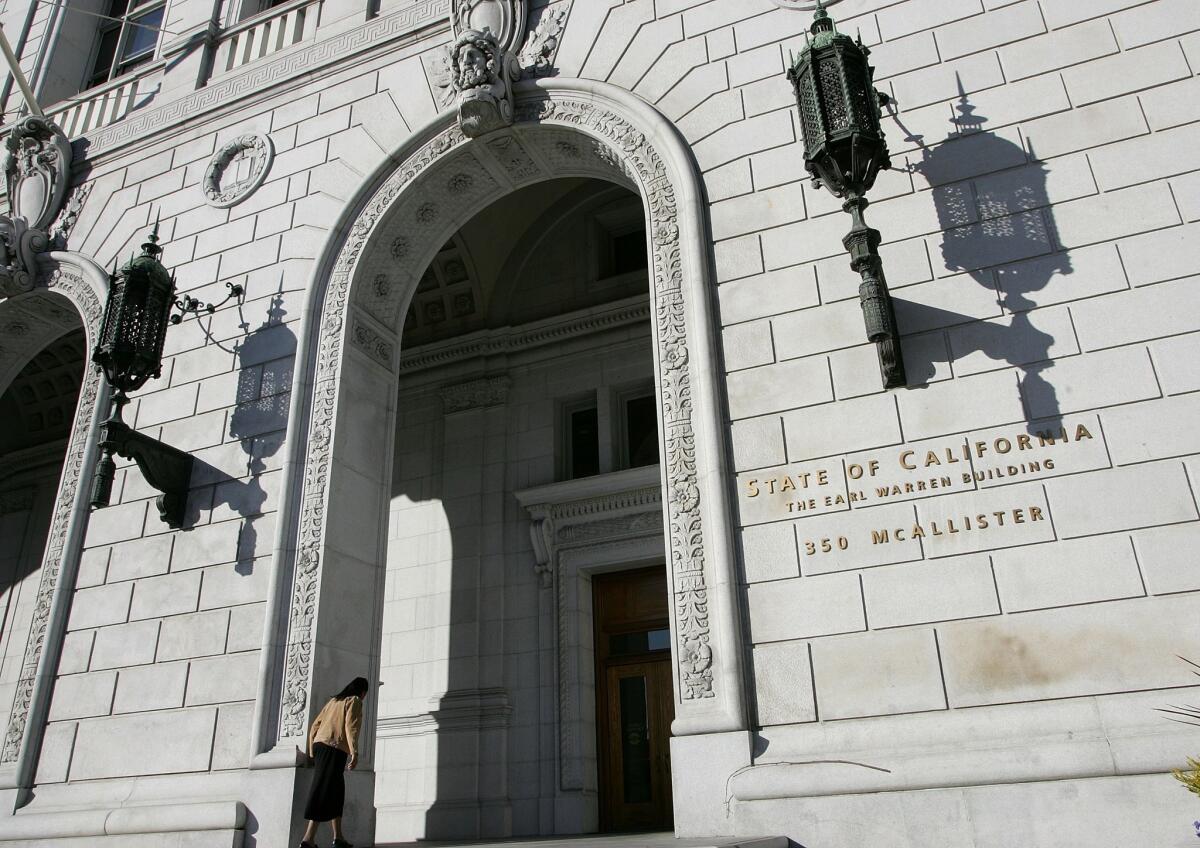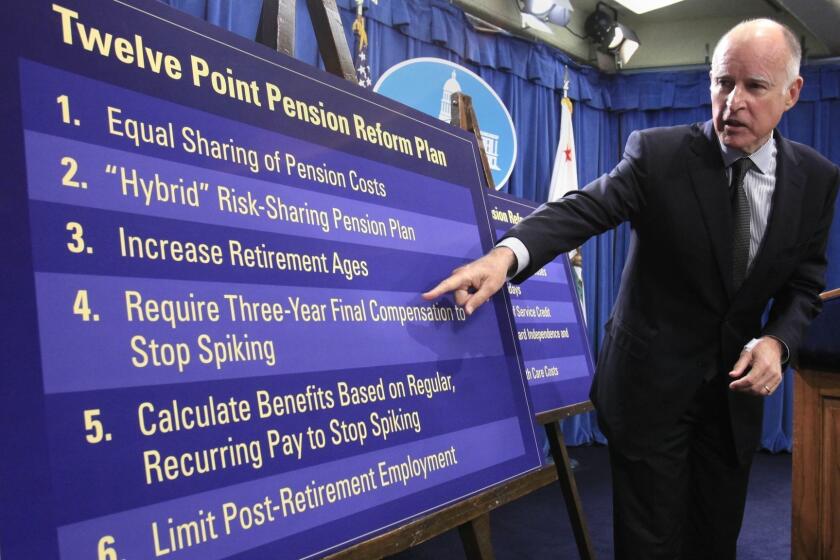California Supreme Court hears suit on public pension law aimed at saving billions

The California Supreme Court grappled Tuesday with whether to uphold a state law designed to help reduce a shortfall of hundreds of billions of dollars in state and local pension systems.
During a hearing, the state’s highest court did not clearly indicate which way it would rule. Only four of the court’s seven justices asked questions, and those who did speak challenged both sides in the dispute.
The court is considering a challenge by unions to a 2012 law that forbade the practice of “pension spiking” for all government employees. The practice involves inflating a future pensioner’s pay, usually at the end of their career, by cashing in years of accumulated vacation or sick pay or volunteering for extra duties.
Because pension payments are calculated based on a worker’s highest year of earnings, spiking can produce a more lucrative retirement than what the employee earned on the job. At least 1 million public employees in California will be affected by the court’s decision.
Unions and public employee groups across the state contend the law violates the 60-year California Rule, which says employees are entitled to the pension they were promised on their first day of work. Courts have ruled that public pensions are contracts protected by the state and U.S. constitutions.
Rei Onishi, Gov. Gavin Newsom’s deputy legal affairs secretary, told the court that governments in California now face massive cutbacks, layoffs and furloughs, a reference to the anticipated budget deficits stemming from the coronavirus pandemic.
He called pension spiking “abusive” and said the practice was “never lawful.” In barring it, he said, the state Legislature merely clarified the law and closed loopholes. He also contended that the law was prospective and therefore did not rob any workers of promised benefits.
Three of the justices appeared skeptical that the changes were merely prospective. “Employees who are currently working might view this as not prospective,” said Justice Mariano-Florentino Cuéllar. “They are arguing they had a set of expectations that are being violated.”
Justice Goodwin Liu also suggested that what is now called pension spiking may have been presumed to be perfectly legal in past years.
The California Supreme Court made it clear Monday that state and local governments may reduce pension costs by repealing certain benefits without running afoul of constitutional protections for public pensions.
David E. Mastagni, representing the Alameda County Deputy Sheriff’s Assn., argued the words “pension spiking” amounted to an “inherently subjective political term.”
He said employees were recruited and told they could depend on the pension rules in place. “My clients were promised they would have deferred compensation,” he said.
Justice Joshua P. Groban, appearing frustrated, asked the lawyer to imagine a “massive economic downturn” and a “doomsday scenario” when pension systems are “on the brink.” He wanted to know: Can there never be any changes?
Mastagni said counties in such cases could ease financial pressures by negotiating additional employee contributions.
In California, the formula for calculating retirement income generally can be changed only if it is neutral or advantageous to employees. It cannot be reduced, except for new hires.
Toward a more sustainable California
Get Boiling Point, our newsletter exploring climate change, energy and the environment, and become part of the conversation — and the solution.
You may occasionally receive promotional content from the Los Angeles Times.
California has been a national leader in pension law, and other states are paying close attention to the outcome of a series of cases testing the government’s ability to make cuts for longtime employees.
After the great recession, former Gov. Jerry Brown tackled the pension shortfall, signing new measures into law. The judiciary, which benefited from past public pension rulings, was exempt from the new cutbacks. Now the pandemic is creating another fiscal crisis for state and local government.
Unlike private pensions, which are governed by a federal law and must be insured, public retirement systems depend on government revenue if obligations exceed contributions and investment income.
More to Read
Sign up for Essential California
The most important California stories and recommendations in your inbox every morning.
You may occasionally receive promotional content from the Los Angeles Times.












